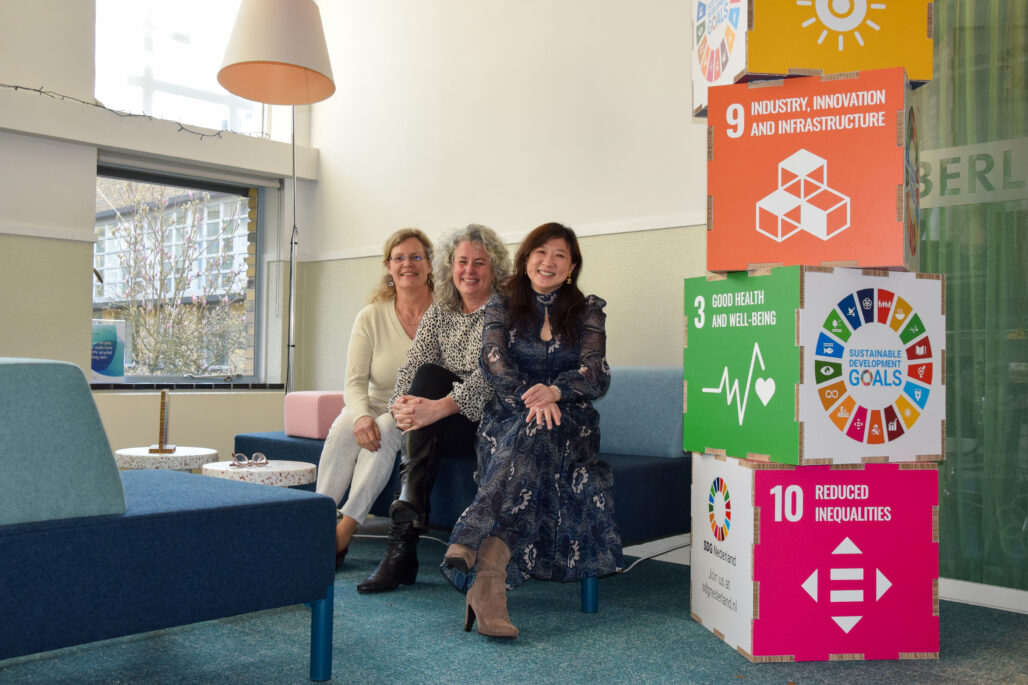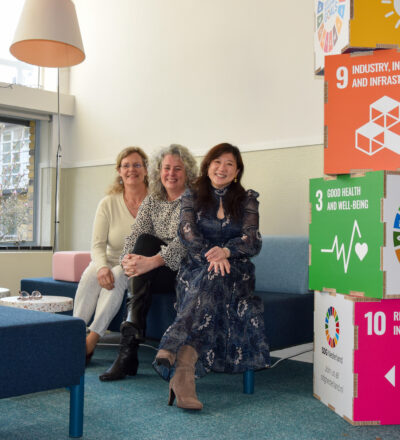March 8th, marked International Women’s Day – a global celebration of the social, economic, cultural, and political achievements of women. The theme of this year is #InspireInclusion, emphasizing actions such as supporting women and girls in leadership, decision-making, business, and Science, Technology, Engineering and Math (STEM), as well as involving them in sustainable agriculture and food security initiatives. Since these are the areas in which ISPT operates, it’s a perfect opportunity to highlight some of the women in our organization, celebrate their achievements, and discuss the significance of inclusion of women in the fields of technology and innovation.
At the Institute for Sustainable Process Technology (ISPT) in Amersfoort, women are the majority of the team. This underscores the pivotal role women play in the transition towards sustainability. Not only do they have technical expertise, they also possess an unparalleled ability in fostering connections and collaboration. These female skills in, what we call, unifying leadership are crucial and indispensable for achieving our collective goals of a circular and carbon-neutral economy.
In this article, we talk to Carol Xiao (Director of Business Development), Klaartje Rietkerken (Director of Operations) and Lia Bouma (Program Administration Coordinator).

The importance of diversity in the workplace
Klaartje Rietkerken, Director of Operations, at ISPT, states: “I believe diversity in the workplace is crucial. By this, I mean diversity in its broadest sense. This involves bringing together different people from different backgrounds within an organization. Each individual brings their own unique skills that complement one another. It is important to value such diverse approaches. Through this, you can foster an open environment where individuals are encouraged to enhance their skills, learn from each other and everyone is treated with respect. This also means actively supporting women to pursue roles at all levels, including directorial and leadership positions.”
Carol Ciao, Director of Business Development at ISPT, adds: “Women in leadership positions are crucial for incorporating various aspects and perspectives. Diversity is very important for this, as it allows us to approach matters from different angles. Generally, leadership positions tend to be quite one-sided, which is why it’s important to introduce more diversity. Women contribute to this diversity, but in addition, factors such as age, culture, and expertise are also important.”
Women in Science, Technology, Engineering and Math (STEM)
According to Lia Bouma, Program Administration Coordinator, women sometimes need an extra push. “Because unfortunately, it is still too often the norm for men to secure leadership positions, and women tend to be less assertive,” says Lia. “There is still a misconception that women are less proficient in technical subjects, while in the past, women were hired for tasks involving calculations or technical skills. Women are often more analytical and can have a broader perspective, but this is not always recognized.”
Carol Xiao says: “In general, it’s a challenge to get more women into STEM fields. Then, this minority must also strive to attain or reach leadership positions. One of the challenges I personally experience is balancing personal and professional life. All too often there is still an unequal distribution of tasks. Societal expectations also differ for men and women, despite living in the Netherlands in the year 2024. Personally, I find it most difficult to give equal attention to both business and personal matters. I have found a balance by coordinating this well with my partner, allowing me to often fully commit to my work. At my employer, ISPT, I also receive the flexibility and trust to efficiently manage my time.”
A supportive network is crucial
“Overall, attaining a leadership position poses significant challenges – for everyone,” says Klaartje Rietkerken. “The journey often begins early, perhaps in high school when choosing a course of study. Continuous growth and development are crucial throughout one’s career. Progress thrives in a nurturing environment that fosters opportunities. A supportive network, within and beyond the workplace, is essential for encouragement and resources. My advice to women is to dare to take steps forward, while being willing to ask for support and maintain independence. It is a constant balancing act.”
Lia Bouma adds, “This is why International Women’s Day remains necessary. It shines a light on crucial issues and prompts awareness. Highlighting women’s strengths in hiring and evaluation promotes inclusivity. We must strive towards a society where individuals are assessed on their qualities. Ultimately, we should treat everyone as human beings, not just members of a specific group.”
Carol Xiao contributes: “At ISPT, our commitment to tackling complex sustainability issues thrives on collaboration with a variety of external partners. Embracing diversity across all dimensions – be it gender or professional background – we create a space where every individual’s initiative is valued. Our team, where women represent over 50% of our workforce, exemplifies a dynamic blend of technical acumen and exceptional collaborative spirit. This synergy of skills is essential for our ambitious goals of a circular and carbon-neutral economy.”
